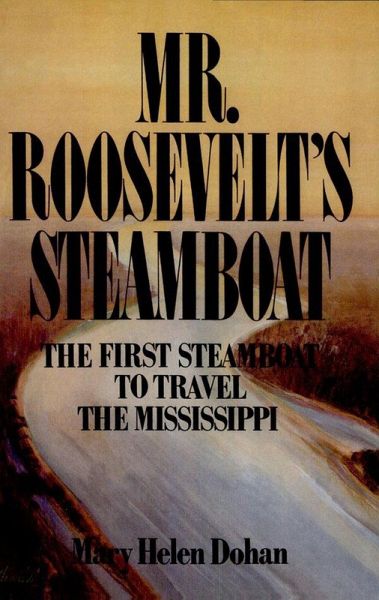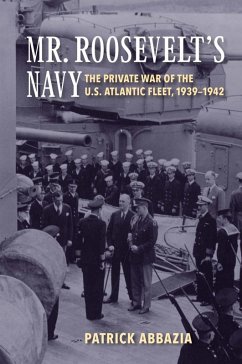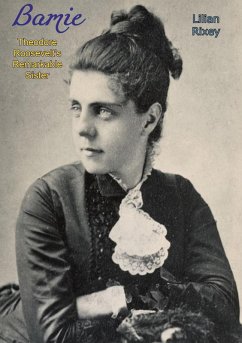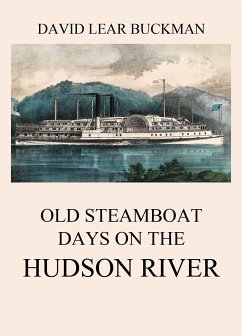
Mr. Roosevelt's Steamboat (eBook, ePUB)

PAYBACK Punkte
7 °P sammeln!
The true story of a family's daring four-month Mississippi River journey-a tale of danger, childbirth, and a massive earthquake that "reads like a novel" ( Publishers Weekly).In 1811, the steamboat New Orleans was the first to travel the Mississippi River in a four-month journey between Pittsburgh, Pennsylvania, and New Orleans, Louisiana. The only people brave enough to embark upon the journey were Nicholas Roosevelt; his pregnant wife, Lydia Latrobe; and their young daughter. During the course of the trip, the brilliant but reckless Roosevelt led his family through navigational perils, host...
The true story of a family's daring four-month Mississippi River journey-a tale of danger, childbirth, and a massive earthquake that "reads like a novel" ( Publishers Weekly).
In 1811, the steamboat New Orleans was the first to travel the Mississippi River in a four-month journey between Pittsburgh, Pennsylvania, and New Orleans, Louisiana. The only people brave enough to embark upon the journey were Nicholas Roosevelt; his pregnant wife, Lydia Latrobe; and their young daughter. During the course of the trip, the brilliant but reckless Roosevelt led his family through navigational perils, hostile Indians, and fire aboard. The small, fire-engine-powered steamboat saw not only the birth of Roosevelt and Latrobe's second child, but also the greatest earthquake ever to strike the eastern United States. That cataclysmic event, described in the book from firsthand accounts, destroyed villages, swallowed islands, and reversed the course of the Mississippi River.
Mr. Roosevelt's Steamboat is an authoritative account of a twenty-five-hundred-mile voyage that significantly contributed to America's transportation revolution. The dynamic main characters share tender romance and great courage. Their incredible trip down the Mississippi assured the future of steam navigation-and the progress of the great westward movement.
"A vivid, fast-moving story." - New Orleans Times-Picayune
"In a class by itself... Surges with excitement." - Louisiana History
"Well-researched, vividly told." - Waterways Journal
"Intriguing romance, [a] taut, suspense-filled story, cataclysmic drama... A whale of a book." - Christian Herald
In 1811, the steamboat New Orleans was the first to travel the Mississippi River in a four-month journey between Pittsburgh, Pennsylvania, and New Orleans, Louisiana. The only people brave enough to embark upon the journey were Nicholas Roosevelt; his pregnant wife, Lydia Latrobe; and their young daughter. During the course of the trip, the brilliant but reckless Roosevelt led his family through navigational perils, hostile Indians, and fire aboard. The small, fire-engine-powered steamboat saw not only the birth of Roosevelt and Latrobe's second child, but also the greatest earthquake ever to strike the eastern United States. That cataclysmic event, described in the book from firsthand accounts, destroyed villages, swallowed islands, and reversed the course of the Mississippi River.
Mr. Roosevelt's Steamboat is an authoritative account of a twenty-five-hundred-mile voyage that significantly contributed to America's transportation revolution. The dynamic main characters share tender romance and great courage. Their incredible trip down the Mississippi assured the future of steam navigation-and the progress of the great westward movement.
"A vivid, fast-moving story." - New Orleans Times-Picayune
"In a class by itself... Surges with excitement." - Louisiana History
"Well-researched, vividly told." - Waterways Journal
"Intriguing romance, [a] taut, suspense-filled story, cataclysmic drama... A whale of a book." - Christian Herald













